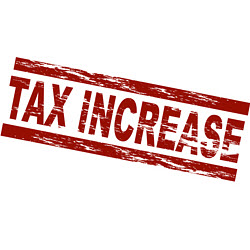 How To Become A Landlord
How To Become A Landlord
The ultimate goal of investing in rental property is to turn a profit. To ensure that you achieve that goal it is essential that you follow several critical guidelines. Most of us dream of becoming a landlord but it an easy or a difficult job? Before you start searching for a home to rent, you should think about the responsibility that comes with being a landlord to your tenants. If you’re interested in investing in real estate, the single-family rental market might be a good option. Being a landlord can be a profitable venture that provides a steady income stream while your property appreciates in value. You might also be able to enjoy certain tax advantages while you build equity in the home.
Here are 8 valuable tips for becoming a successful landlord and start a rental property business.
1. Screen Your Tenants
First, always make sure that you check tenant references. This is the first step of becoming a successful landlord. This can be a burdensome step and many landlords overlook it because they feel as though they have good instinct when they meet with the tenant. But not checking references can lead to a number of problems later on. You will uncover a wealth of information about potential problems before you rent to a prospective tenant. It’s also worth the time to do a background and credit check on all potential tenants. There are several online tenant-screening services available, and you should be sure to check potential tenants’ credit scores. You should also conduct an interview to make sure you’re comfortable interacting with them, and check references, especially from employers or past landlords.
 A Phoenix home with 95 bids is just one example of a housing market entering a new and unprecedented phase. Experts at Arizona State University School of Business say Phoenix is headed for a major housing shortage.
A Phoenix home with 95 bids is just one example of a housing market entering a new and unprecedented phase. Experts at Arizona State University School of Business say Phoenix is headed for a major housing shortage. Well, well, well… what an interesting year 2013 is shaping up to be!
Well, well, well… what an interesting year 2013 is shaping up to be! A tax break that has long been untouchable could soon be in for some serious scrutiny. Many home buyers deduct their mortgage interest when assessing their tax bill, a perk that has helped bolster the income of millions of families – and the broader housing market. But as President Obama and Congress try to hash out a deal to reduce the budget deficit, the mortgage interest deduction will likely be part of the discussion.
A tax break that has long been untouchable could soon be in for some serious scrutiny. Many home buyers deduct their mortgage interest when assessing their tax bill, a perk that has helped bolster the income of millions of families – and the broader housing market. But as President Obama and Congress try to hash out a deal to reduce the budget deficit, the mortgage interest deduction will likely be part of the discussion. Home prices rose by 0.1% in September from the prior month and by 3.6% from one year ago, the largest gain in six years, according to a report released Monday by Lender Processing Services.
Home prices rose by 0.1% in September from the prior month and by 3.6% from one year ago, the largest gain in six years, according to a report released Monday by Lender Processing Services. It is an out-of-favor asset class that has attracted the attention of David Ackman, a hedge fund manager with a fondness for contrarian investments. “The best investments we've made are the ones no one else would touch,” Ackman explains. That's why he's so hot on Single Family Home Rental Property. They are cheap, he says. They are a buy.
It is an out-of-favor asset class that has attracted the attention of David Ackman, a hedge fund manager with a fondness for contrarian investments. “The best investments we've made are the ones no one else would touch,” Ackman explains. That's why he's so hot on Single Family Home Rental Property. They are cheap, he says. They are a buy.
 Housing and rental vacancies have hit unprecedented levels. Included in these record vacancy numbers are a plague of abandoned properties fated for demolition, and millions more homes being withheld from market. Of the more than 19 million empty homes recorded by the US Census, just under 2 million are up for sale, many of them in uninhabitable condition.
Housing and rental vacancies have hit unprecedented levels. Included in these record vacancy numbers are a plague of abandoned properties fated for demolition, and millions more homes being withheld from market. Of the more than 19 million empty homes recorded by the US Census, just under 2 million are up for sale, many of them in uninhabitable condition.